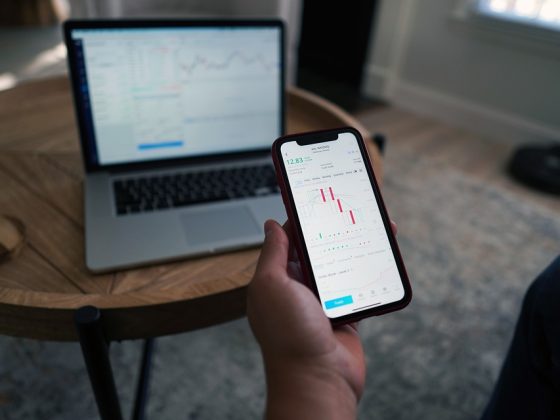The economy can be a complex and intimidating topic for beginners. However, understanding the basics of economics and personal finance is essential to navigate the world of investing, saving, and budgeting. Getting started in the economy may seem overwhelming at first, but with the right tips and tricks, you can set yourself up for financial success.
Here are some tips and tricks for beginners looking to get started in the economy:
1. Educate Yourself: One of the most important steps in getting started in the economy is to educate yourself about the basics of economics and personal finance. There are plenty of resources available online, such as articles, videos, and courses, that can help you understand key concepts like inflation, interest rates, and budgeting.
2. Set Financial Goals: Before you start investing or saving, it's essential to set clear financial goals. Whether you want to buy a house, travel the world, or retire early, having specific goals in mind will help you stay motivated and focused on your financial journey.
3. Create a Budget: Creating a budget is a crucial step in managing your finances effectively. Start by tracking your income and expenses to get a clear picture of your spending habits. Then, allocate a portion of your income towards savings and investments to help you reach your financial goals.
4. Start Saving Early: The earlier you start saving, the more time your money has to grow through compound interest. Even if you can only save a small amount each month, every bit counts towards building your financial future.
5. Diversify Your Investments: Diversification is key to managing risk in your investment portfolio. Instead of putting all your money into one investment, spread it across different assets like stocks, bonds, and real estate to minimize the impact of market fluctuations.
6. Stay Informed: Keeping up to date with current economic trends and events is essential for making informed financial decisions. Follow financial news outlets, read books on investing, and attend seminars and workshops to stay ahead of the curve.
7. Seek Professional Advice: If you're unsure about where to start or how to manage your finances, consider seeking advice from a financial advisor. A professional can help you create a personalized financial plan and offer guidance on how to achieve your goals.
8. Stay Disciplined: Building wealth takes time and discipline. Avoid impulsive spending, stick to your budget, and resist the temptation to make rash investment decisions. Remember that long-term financial success requires patience and commitment.
FAQs:
Q: How much money do I need to start investing?
A: The amount of money you need to start investing depends on the type of investment you choose. Some investments require a minimum initial deposit, while others allow you to start with as little as $100. It's essential to do your research and choose investments that match your budget and risk tolerance.
Q: What are some common investment options for beginners?
A: Some common investment options for beginners include mutual funds, exchange-traded funds (ETFs), and robo-advisors. These options offer diversification, low fees, and professional management, making them ideal for novice investors.
Q: How can I improve my credit score?
A: To improve your credit score, pay your bills on time, keep your credit card balances low, and avoid opening new accounts frequently. Monitoring your credit report regularly and disputing any errors can also help boost your score.
Q: Should I pay off debt before investing?
A: It's generally a good idea to pay off high-interest debt, such as credit card debt, before investing. Eliminating debt can free up more money for savings and investments and prevent you from paying excessive interest charges.
Q: How can I build an emergency fund?
A: To build an emergency fund, set aside three to six months' worth of living expenses in a high-yield savings account. Start by saving a small amount each month and gradually increase your contributions until you reach your savings goal.
In conclusion, getting started in the economy may seem daunting, but with the right tips and tricks, you can take control of your financial future. By educating yourself, setting financial goals, and staying disciplined, you can build wealth and achieve your financial dreams. Remember to seek advice from professionals, stay informed, and be patient as you navigate the world of economics and personal finance.











